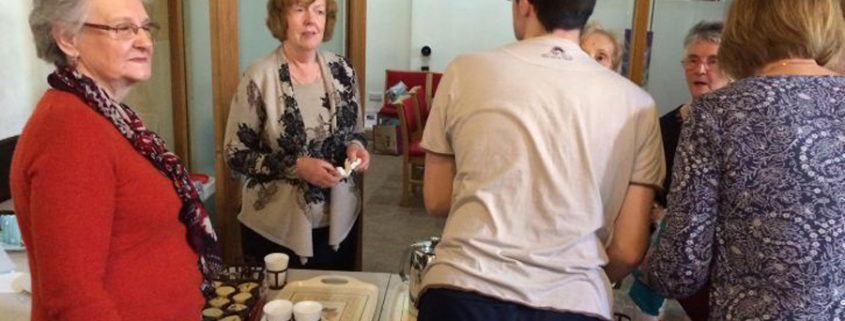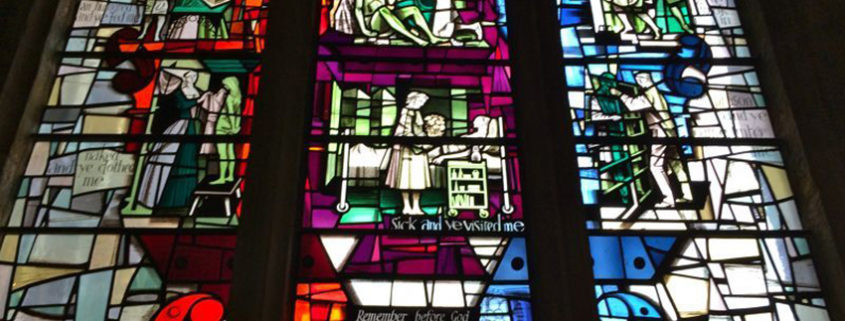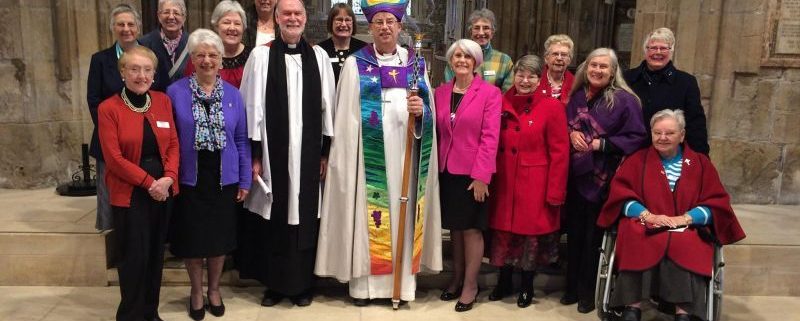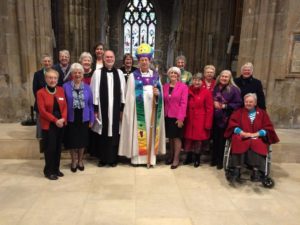A few weeks ago I was invited to address the presbyteral session of the Methodist Conference meeting in Birmingham. The invitation came from my friend and former colleague, Roger Walton, the President of the Conference. This is the text of the address.
The Burning Bush
“Moses was keeping the flock of his father in law Jethro, the priest of Midian; he led his flock beyond the wilderness and came to Horeb, the mountain of God”.
*
The old shepherd limped across the desert with his flock, sticking to familiar pathways wherever he could. He’d spent most of his life avoiding responsibility and leadership. There had been ambition, certainly, in his youth. He’d tried to lead but it had all gone wrong. He’d been fortunate to escape with his life. He’d lived ever since far from his people, tending the flock of his father-in-law. He’d heard things were bad, of course. Some news reached him even in the desert. He prayed from time to time. But there was nothing he could do.
Until that day, on Horeb, when everything changed. His eye was caught by a bush on fire. He looked more closely. The bush was blazing. He saw the flames, heard the crackling of the wood, felt the warmth. The bush was ablaze, yet it was not consumed. Moses turned aside to see. God called him out of the bush.
*
My intention this morning is to explore the themes of vocation and ministry and leadership through the story of the call of Moses as told in Exodus 3 and 4.
I have had a growing conviction over many years that as a Church we need to reconnect in a much deeper way with the Scriptures and the tradition in our reflection on leadership. We have been distracted now for a generation by the bright lights of the business school and by all that the social sciences can teach us about the exercise of leadership in communities. There are clearly things we can learn from that source.
But we have neglected to explore the deep mine of our own tradition for those lessons on how to lead. We need to recover them for they contain vital lessons not only on the exercise of leadership in communities as ministers but lessons in leadership for headteachers and school governors; for politicians and business leaders; for vice chancellors and civil servants. Every time we address a congregation, we are addressing a group of leaders: people of great influence. One of our tasks as ministers of the word is to explore and expound this deep rich seam of reflection on leadership in the Old Testament and the New; in the early Father’s of the Church; in our history, our theology and our practice down the generations. We are part of the longest continuous tradition of reflection on leadership in communities there has ever been in the entire history of human culture. The entire story of Moses is a story of what it means to exercise leadership. Exodus 3 and 4 are where that story begins.
*
The elderly shepherd stands on Horeb, the mountain of God.
“Then the angel of the Lord appeared to him in a flame of fire out of a bush; he looked and the bush was blazing, yet it was not consumed. Then Moses said, “I must turn aside and look at this great sight and see why the bush is not burned up”.
Moses is living, as you will remember, in the place of exile and failure. Forty years ago he attempted to assume a position of power and influence among his people both as their protector and as their judge. He was rejected both by the Egyptians and by the Israelites. He fled to Midian, far away. He is living as an alien in the foreign land. The story of his call is a story of restoration as well as vocation.
When we first read the story and often when we interpret the story, we see the burning bush as a dramatic device. This is the way that God attracts the attention of Moses.
There is a bush fire by the roadside which draws the eye. Moses draws nearer. The bush is blazing but not consumed. It is this, not simply the fire, which causes Moses to turn aside long enough to hear the voice of God.
But down the years many of those who have gone before us have reflected deeply on this passage and they have found more in the burning bush than a dramatic device to hold Moses’ attention and curiosity.
We all know the principle of fire which needs fuel to feed it. In our house we have a log burner. It is at the very heart of our home. When they come home our four adult children love to sit in front of it and to gather around a living flame. But this fire will not work without fuel. On a cold winter’s afternoon, we can easily burn two baskets of logs. The idea that we could put the logs in, enjoy the fire and then take the logs out again and put them back in the garage is absurd. They are turned to ash.
But this fire in Exodus burns and is not consumed. How is that? Moses is curious and so draws near and hears the voice of God. The burning bush is a narrative device.
But the saints who have pondered this down the years have seen more. They have connected the burning bush with another fire which burns and does not consume: the fires of Pentecost, the flames which appear above the heads of each of the disciples. The flames cause them to burn with passion – with love for God and for others – but not to be burned up. The burning bush describes a profound mystery at the heart of the discipleship and ministry.
The burning bush and the flames at Pentecost are a picture of God’s love for us and for everyone God has made. God’s love is disproportionately passionate, burning, but not overpowering or consuming the object of God’s love. This is the love which sets our hearts on fire as we read the scriptures and celebrate the sacraments but which does not consume us. This is the passion which burns with love for God’s people, which hears their cries, and brings God to answer their prayers in his dialogue with Moses.
Passion is one of those beautiful English words. The meaning of passion combines strong love and and strong anger at injustice and suffering. There is a vital place for passion in our discipleship and in ministry. If we live with our eyes open, we will be deeply moved, often, by the suffering in the world, by injustice and by the state of the Church.
In our call to be disciples we are invited daily into a relationship with this God who loves us deeply but whose love does not overpower us or swamp our will or wipe out our personality. God is not the dominant husband or wife in whose shadow the other partner disappears. God sets us on fire but does not consume us. Christian discipleship is not about self negation of gifts or personality but about the flourishing of each individual.
God’s grace at the burning bush is a model too for our ministry. We are to be like that with others: to build them up to be the best they can be not to use them for our glory.
Passion in discipleship and ministry needs to imitate the burning bush.
In the words of an old ACCM selection document, one of the great signs of spiritual and personal maturity in a minister is to burn but not burn up – to burn but not to be consumed. We are called to a long steady love and a long steady deep anger at injustice but held within a confident vision of the God of order, of creation, the God who has won the victory.
That is not an easy vision to articulate or live, but it is a powerful vision of God’s passion and passion in ministry.
*
The great Christian tradition on how to lead in communities is based on a single, powerful insight about leadership which is deeply countercultural.
Our tradition is based upon the simple and deep conviction that leadership in communities is very, very, very difficult. That conviction is underscored more and more deeply for me the more I am called to exercise leadership and observe leadership in others.
The wisdom for leadership which has emerged in the last generation from the social sciences and from business can be very helpful. But it is based on the premiss that leadership is basically very straightforward. All you need to do is master a few basic disciplines and rules, usually all beginning with the same letter. All you need to do is read my book, attend my seminar, take an MBA and you will be equipped to lead others. The simpler we believe something to be, the more likely we are to fail.
Pope Francis gave a TED talk recently. It is well worth watching if you haven’t seen it. I found it very moving to listen to the Pope telling the TED community the story of the Good Samaritan as if they had never heard it before.
Francis best line is a quotation from an Argentinian proverb: “We have a saying in my country: the exercise of power without humility is like drinking gin on an empty stomach. We damage others and we damage ourselves”.
Francis takes us to one of the central reasons why the exercise of leadership is difficult. The exercise of influence is not a neutral thing. The exercise of power has an effect upon us: it touches and changes our inner being, our souls. Our experiences of leadership affect us very deeply.
The Old Testament narratives of leadership by and large offer us scores of different ways in which leadership goes wrong.
The patristic tradition on leadership is based on exactly the same conviction. There are four classical texts which carry the tradition. Three of them are written on exactly the same pretext. John Chrysostom writes On the Priesthood. Gregory Nazianzen writes On his Flight to Pontus. Pope Gregory the Great writes The Pastoral Rule, one of the most influential texts in shaping leadership in the western world.
All three write on this pretext: exercising leadership as a presbyter or bishop is so difficult, so very very difficult, so fraught with danger for your inner being and your soul, that it is much better to run away to a far country rather than be ordained to this ministry. All three claim that they themselves ran away.
It is an insight preserved in the Orthodox ordination services where the candidates do not process in with honour but at an appropriate moment in the service are discovered at the back of the assembly, like Saul hiding among the baggage, and dragged before the bishop to be ordained.
The leadership we offer is hard in itself: we are confronted daily by intractable situations; scarce resources; resistant communities; impossible tasks. We are confronted daily by our own fallibility. The leadership we offer and the way we offer it will over time distort and shape our personalities and our lives if we allow it to do so.
It’s my habit to reflect often on the leadership I offer in four domains. The leadership I offer in the world; the leadership I offer in the church; the way I work with individuals and teams; and the way I am watching over myself.
I have learned over many years that the place attention is most needed and the foundation of everything else is the diligence and wisdom to watch over myself, my inner journey, my character and disciplines for everything else will flow from that and the knots and problems of leadership will often but untangled in that deep inner dialogue.
*
Moses stands before the burning bush. He hears the very voice of God speaking to him. God introduces himself: I am the God of your father, the God of Abraham and Isaac and Jacob”. God has observed the misery of his people. He is coming to deliver them to bring them into a good and broad land.
Moses is invited into a profound and beautiful relationship of passion: for his heart to be set on fire again. He hears God calling him: “So come, I will send you to Pharoah to bring my people out of Egypt”.
But here is the second mystery in the story. Moses does not say yes to this call.
“But Moses said to God “Who am I that I should go to Pharoah and bring the Israelites out of Egypt”.
You know the passage at least a little. For the remainder of Exodus 3 and most of Exodus 4 the dialogue continues. Moses offers not one, not two, not three, not four but five excuses as he attempts to avoid God’s call.
One of the paradoxes of the story is that Moses never actually says yes in the narrative. He is a reluctant leader. Moses offers the living God five different excuses.
I paraphrase.
Who am I? (verse 11)
God replies by simply saying I will be with you.
Who are you? (verse 13)
“But Moses said to God “If I come to the Israelites and say to them “The God of my ancestors has sent me to you and they ask me “What is his name”, what shall I say?
This passage links to the revelation of the divine name, the high point of the passage.
They won’t believe me (4.1)
I can’t speak very well (4.10)
O God please send someone else (4.13)
Moses debates and argues with the living God as he is to do many more times in the great narrative of the Exodus. In this very dialogue there is a living illustration of the burning bush, the fire which does not consume.
What is Exodus teaching us here?
First that God invites Moses first and foremost into relationship, friendship. This is not simply a servant and master relationship. There is dialogue, debate, argument based on mutual respect, even though one of the partners is the living God. God is patient, at least for the first four excuses. One of the themes of the whole Book of Exodus is the patience of God. God answers each of Moses’ questions. God nurtures Moses calling.
Passion is debate and engagement with God and in prayer. Passion is full of life. The opposite of passion is acidie. Spiritual listlessness neither being cold nor hot. The Psalms teach us to take our passion into our relationship with God. To lament, to be angry, to argue, to grieve.
One of the great privileges of ministry is inviting other people into this kind of service of this kind of living God. Helping them to foster this rich inner dialogue and encounter. One of the great privileges of Christian discipleship is this kind of debate with the living God as we wrestle to work out our salvation and our vocation.
The second lesson lies in the actual excuses themselves. I have found throughout my ministry that the same deep inner questions of character emerge and re-emerge at each stage of life and responsibility.
The deep questions Moses asks have to be revisited in internal and external dialogue regularly. They are not once and for all questions. I think the narrative shows that Moses himself will go on visiting them as the story unfolds as we do.
I am doing some work at the moment with a transition coach as part of my journey of letting go of my responsibilities and diocese in Sheffield and engaging with larger and different responsibilities as the Bishop of Oxford. I’m only part way through that process.
But it is largely an inner journey not an outer journey. It’s not primarily about learning new skills. It’s an invitation to go deeper in my understanding of God and my understanding of myself.
In particular I’ve had to confront in a new way a struggle that has been present for me throughout my ministry: with a lack of courage and self doubt. Who am I? I can’t do this. They won’t believe me. I can’t speak very well. O God please send someone else.
Naming and confronting my fears has been vital in that process of growing in leadership. The answer to them is, I think, that gentle dialogue with the living flame of God’s presence which burns but which does not consume: the call to know God better as the heart of our ministries and the leadership we offer.
How that dialogue happens is vital to the fruitfulness of our ministries.
One of the regular things that happens in ministry is not so much that we resign or withdraw from what we are called to do – although that does happen from time to time. It is rather than we resign or withdraw inwardly even through outwardly we continue to do the job. There is an inner abdication of vocation.
Outwardly we are in office but we are not in power. We disengage. It’s as if we are in a game of baseball. We stand on the batter’s diamond. But again and again we let the ball sail past with no intention of striking it out of the ground. Opportunities to do good come but we fail to respond. There is an inner weariness of spirit, a paralysis caused by fear, a lack of hope and joy in our engagement. We professionalise and bureaucratise our calling and the church. Our sense of being on fire for God diminishes. Our hearts are no longer strangely warmed.
*
If you find yourself in such a moment, individually and corporately, can I commend careful and prayerful engagement with the story of Moses in Exodus 3 and 4 and the two riddles it contains: the bush which burns but which is not consumed. The call which is offered but which is not answered.
Again and again in our ministries, God recalls us to the fire in faith and love and gentleness – rarely in the same ways, often in new and creative ways. We will be called to reflect on our own identity, on God’s nature and identity, upon our perception of the church, upon our perception of our own abilities, on the excuses we offer.
There is no way to engender passion for Christ, for the Scriptures, for justice in others unless you are first set alight by God and maintain that passion throughout your ministry. If you are to set hearts and lives on fire for God, as I hope and pray you will, you must first be on fire again yourself.
I was privileged to be the Anglican fraternal delegate to the Synod of Bishops in Rome on Evangelisation in 2012. It was a powerful experience and one that has stayed with me. There were 400 cardinals, bishops and advisors from all over the world sharing with one another how difficult it is to pass on Christian faith in the contemporary world. The most moving moment in the Synod came when one of the senior Vatican cardinals stood up and said: it is we who need evangelising. We need ourselves a deeper experience of Christ. It is out of that deeper experience of Christ in the Church that mission and ministry and good leadership will flow.
We end this session with the beautiful and powerful words of Charles Wesley which draw on this powerful image of the fire which burns but which does not consume and God’s gentle yet powerful call to service and to ministry:
O thou who camest from above
the fire celestial to impart,
kindle a flame of sacred love
on the mean altar of my heart.There let it for thy glory burn
with inextinguishable blaze,
and trembling to its source return
in humble prayer and fervent praise.Jesus, confirm my heart’s desire
to work and speak and think for thee;
still let me guard the holy fire
and still stir up the gift in me.Still let me prove thy perfect will,
my acts of faith and love repeat,
till death thy endless mercies seal,
and make the sacrifice complete.
Address to the Presbyteral Session of the Methodist Conference
23rd June 2017







